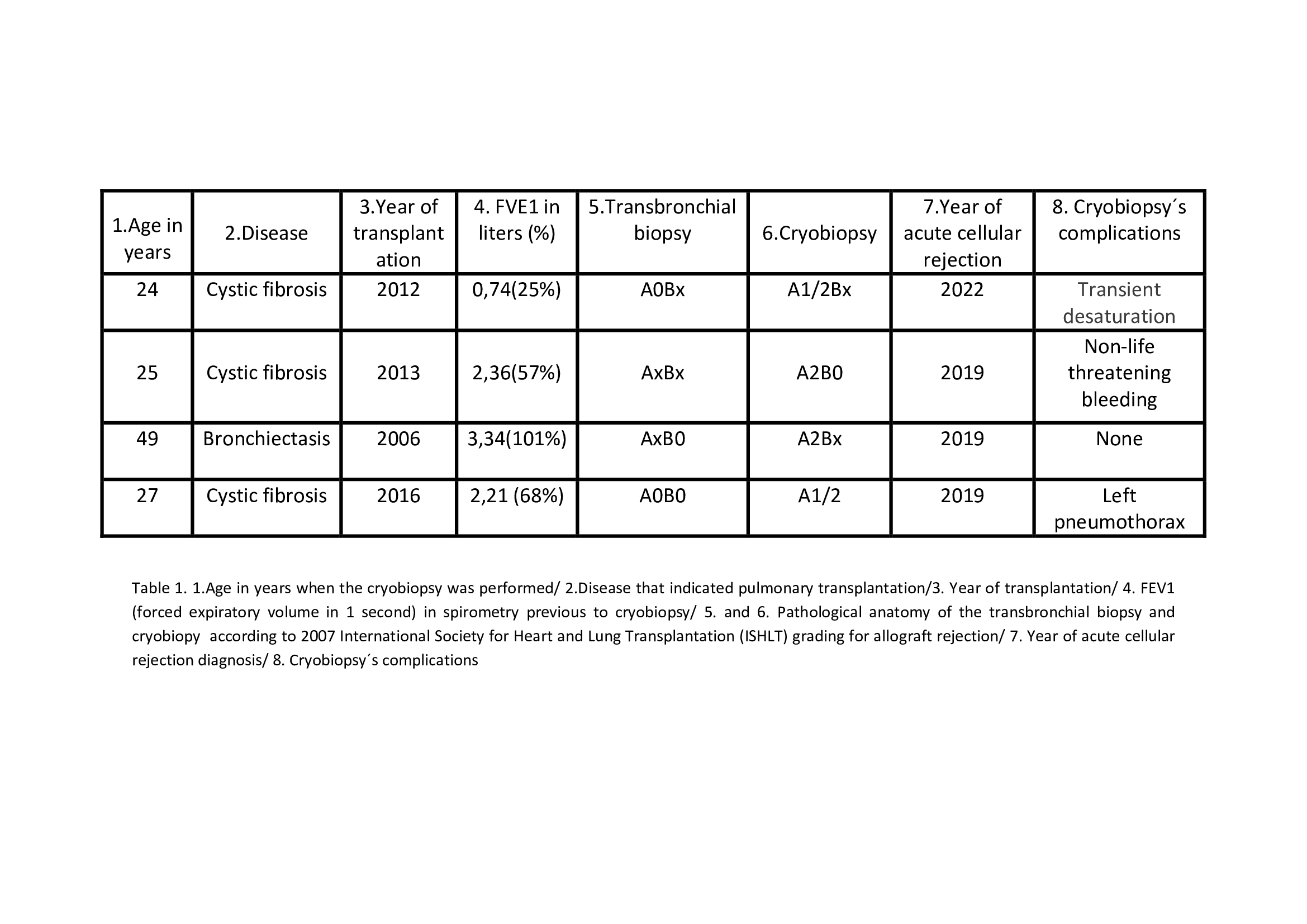Cryobiopsy in the diagnosis of lung allograft rejection: Brazilian case series
Carlos E F Belon1, Elissa A Okuno1, Silvia V Campos1, Ascedio J Rodrigues1, Evelisse Lima1, Paulo R Scordamaglio1, Priscila C L B Camargo1, Ricardo H O B Teixeira1, Rafael M Carraro1, Andre N Costa1, Juliana P Pires1, Flávio P Reis1, Lucas M Fernandes1, Luis G Abdalla1, Paulo M P Fernandes1, Mauro R Filho1, Samuel L Santos1.
1Department of Lung Transplantation, Instituto do Coração - InCor, Heart Institute - University of São Paulo, São Paulo, Brazil
Introduction: Bronchoscopy with transbronchial biopsy is the main tool for diagnosing lung allograft rejection and is also used in lung transplantation recipients follow-up. Recent trials have shown a higher sensitivity value in cryobiopsy than transbronchial biopsy for allograft rejection.
Method: Four cases of lung transplantation in a single center in Brazil were analyzed for allograft rejection with transbronchial cryobiopsy. The materials were examined by the same pathologist in all cases and the results were based on the 2007 International Society for Heart and Lung Transplantation (ISHLT) grading for allograft rejection.
Results: Four pulmonary transplanted patients were submitted to transbronchial biopsy, which either resulted inconclusive (Ax according with ISHLT grading for allograft rejection) or inconsistent with clinical manifestations and pulmonary function. As an outcome, those patients underwent cryobiopsy to investigate allograft dysfunction. All of them had their rejection grading modified after the procedure and therefore their treatment which consisted in pulse therapy with methylprednisolone. The characteristics of the patients are described in Table1.
Conclusion: Cryobiopsy is an accurate procedure for diagnosing cellular allograft rejection post lung transplant and can change treatment for patients.

right-click to download
